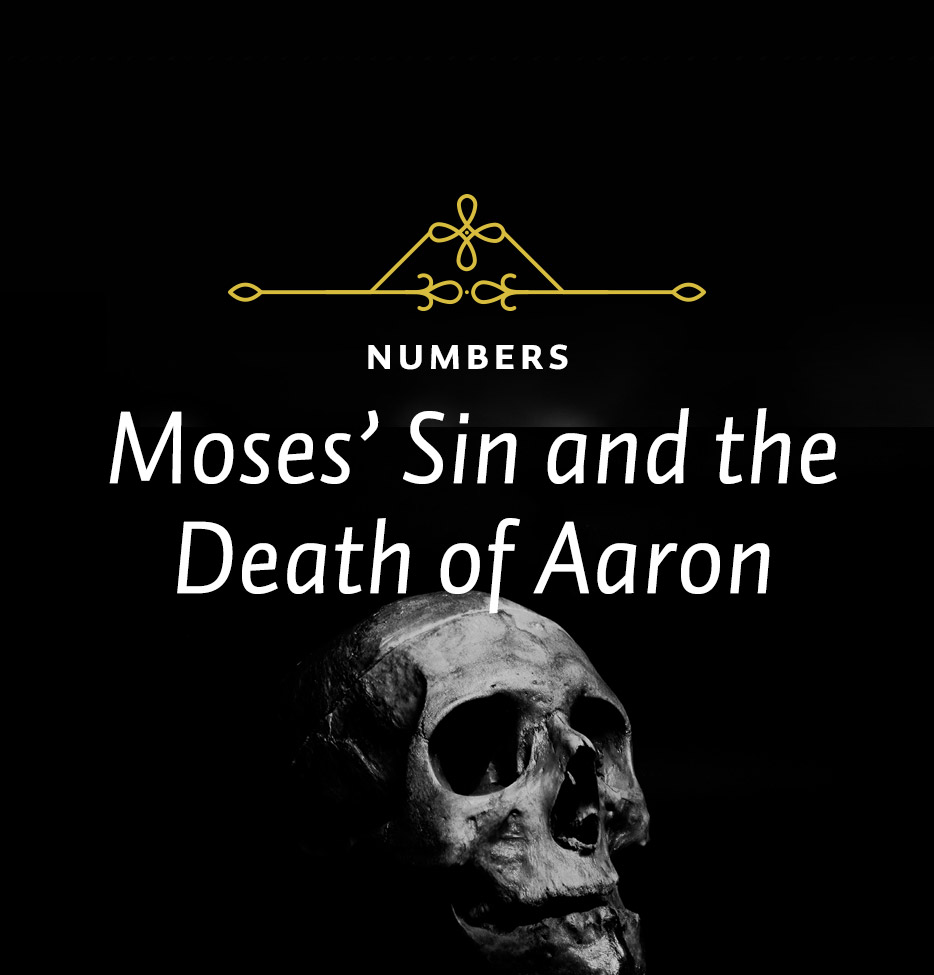Those who trust in God have an eternal, secure dwelling place in Him. We don’t have a secure dwelling place in this earth. Everything on this earth is uncertain; even the earth itself is going to pass away. But if you are anchored in God, you have a secure dwelling place in Him. That’s why Abraham didn’t build a mansion on earth, but rather “he looked for a city that has foundations, whose builder and maker is God” (Heb. 11:10).
Are you anchoring your life in God, or are you putting your hope and all your earthly efforts into perishable things that will pass away? Paul gave his own testimony in 2 Corinthians 4:18: “We fix our eyes not on what is seen, but on what is unseen. For what is seen is temporary, but what is unseen is eternal.”
The second thing Moses reflects on in Psalm 90 is the frailty of man in contrast with the stability and grandeur of God. Moses writes:
You turn men back to dust, saying, “Return to dust, O sons of men.” For a thousand years in your sight are like a day that has just gone by, or like a watch in the night. You sweep men away in the sleep of death; they are like the new grass of the morning—though in the morning it springs up new, by evening it is dry and withered. We are consumed by your anger and terrified by your indignation. You have set our iniquities before you, our secret sins in the light of your presence. All our days pass away under your wrath; we finish our years with a moan…Who knows the power of your anger? For your wrath is as great as the fear that is due you. (vv. 3-9, 11)
This is a profound set of statements, because Moses is linking the mortality and frailty of man to sin. That’s a significant statement in itself, appropriately coming from the one who recorded the events of the fall in the third chapter of Genesis. God connects them when he says that if you eat of the tree of the knowledge of good and evil, you will surely die (see Gen. 2:17), and now Moses understands that connection. Sin always leads to death. If you’re aware of this, you won’t treat sin as lightly as so many of us do. You’ll say with David, “Who can discern his errors? Forgive my hidden faults” (Ps. 19:12). And you’ll pray as David does, “Keep your servant also from willful sins; may they not rule over me” (Ps. 19:13).
The final verses of Psalm 90 show us our need of God’s grace. Moses is very aware of that. He is bringing before our eyes the grandeur of God. He is reflecting on the frailty and sin of man that brings the wrath of God upon him. In a world like this, with people like this, and sin like ours, we need the grace of God. We need the grace of God for our forgiveness, that we might stand and live before Him, but we also need the grace of God to make valuable anything we do. Because unless God establishes it, everything we do is going to pass away. As Moses says,
Relent, O LORD! How long will it be? Have compassion on your servants. Satisfy us in the morning with your unfailing love, that we may sing for joy and be glad all our days. Make us glad for as many days as you have afflicted us, for as many years as we have seen trouble. May your deeds be shown to your servants, your splendor to their children. May the favor of the Lord our God rest upon us; establish the work of our hands for us—yes, establish the work of our hands.
Unless God establishes the work of our hands, nothing that we do is going to matter. But if God has placed us here to do something, what we do is going to matter. Even though a generation is passing, even though Miriam and Aaron have died, and even though Moses is about to die, Moses asks that God establish the work they have done by His grace. And God did it.
Moses did what God had given him to do, and God established his work. And the proof of it is that we have it right here in the Bible. We not only have the history of Israel, which led up eventually to the coming of Jesus Christ, but we also have the record of what he has done in words inspired by the Holy Spirit for our benefit.
Has God established your work? Will He establish your work? Are you looking to Him to establish your work? What you want is for what you do to be so blessed by God that those who come afterward will say that God was in that, God was glorified, and they’ve been blessed. And then, when you get to heaven, God will say to you, “Well done, good and faithful servant.”






